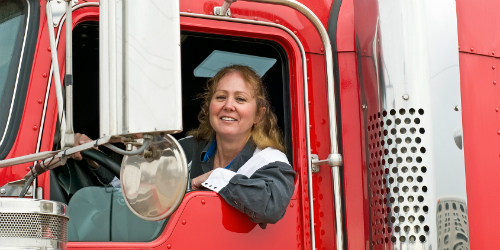- About Us
- Report an Incident
- Safety Management
-
- Aerosol Transmissible Disease
- Bloodborne Pathogens
- Asbestos Program
- Confined Spaces
- Construction Safety
- Control of Hazardous Energy
- County Safety Management Program
- Ergonomics Program
- Fall Protection
- Fleet Safety
- Hazard Communication Program
- Hearing Conservation
- Heat Illness Prevention
- Injury & Illness Prevention Program
- Lead Monitoring Program
- Personal Protective Equipment
- Respirator Protection Program
- Vector Borne Illness
- Forms
- Staff Assignments
- Website Accessibility Assistance
- Back to Vehicle Use
Commercial Driver Program

Employees who drive vehicles of a certain size and type for their employer are required to have a special license (CDL) and have special regulations they need to follow. In order to drive a commercial vehicle, a driver needs to pass both a knowledge and skills test and be tested on the type of vehicle he/she will be driving. Certain vehicles, such as passenger vehicles, require a special endorsement on the license. Drivers of commercial vehicles are held to a higher standard than most drivers for violations and accidents.
Commercial Driver Licenses are issued by the DMV to drivers of vehicles over 26,001 pounds, designed to transport 16 or more passengers, or designed to transport hazardous materials and require placarding. CDL drivers may be required to undergo medical fitness tests including for drugs and alcohol. Drivers of vehicles that carry passengers or hazardous materials may need to also have training in other regulations. CDL drivers are subject to the Employer Pull Notice Program that provides employers with driver records for the purpose of evaluating driver safety.
To get more information on the applicability of the commercial driver program for a specific County operation please contact the corresponding departmental Safety Coordinator.
For further information on specific regulatory guidelines please refer to the link(s) below.